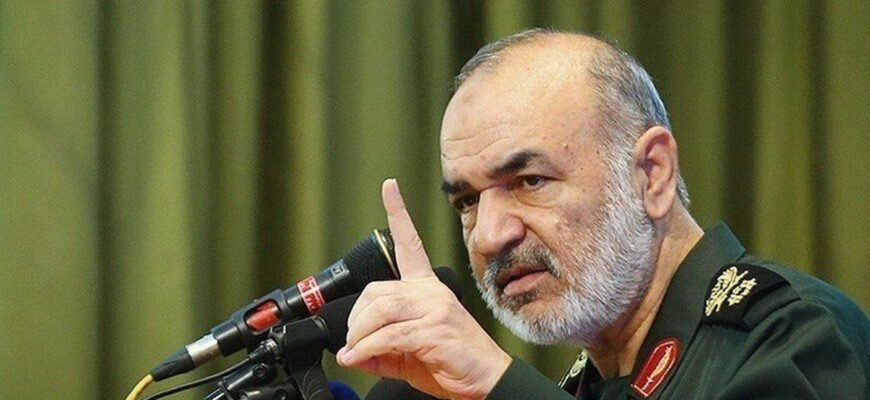IRGC chief wishes he had been on crashed plane

TEHRAN — Chief of the Islamic Revolution Guards Corps (IRGC) has said that he wished he was on the downed Ukrainian plane so he could avoid the shame of making such a colossal mistake.
Major General Hossein Salami made the remarks during a closed session of the parliament on Sunday.
“Concerning the incident, we are saddened more than anybody else and never thought we would carry out an action that could harm people,” Salami said, according to Mehr.
“The operator was informed of cruise missiles targeting some points in Iran, for few moments he was disconnected with SOC (security operations center),” he explained.
“Therefore, he mistook the passenger flight for a missile and shot it down,” he added.
Salami told the Iranian lawmakers that it was the IRGC that initially raised the hypothesis of the passenger plane being mistakenly brought down by a missile.
“We had not been certain until Wednesday evening about what actually had happened,” he said, expressing deep grief for the unintentional mistake.
“We will compensate for our mistake,” he promised.
He told the MPs that after Iran’s retaliatory attack on the U.S. Ain al-Assad airbase in Iraq’s Anbar Province, multilayered projections were made in case the Americans embarked on reprisals so that the IRGC could make necessary plans and predictions.
“We are saddened more than anybody else and never thought we would carry out an action that could harm people.”
“What came to pass was that we had locked horns with a superpower, and naturally the country was not under regular conditions,” he added.
He said that in its airstrikes to Ain al-Asad, the IRGC did not seek to kill U.S. soldiers but to deal major damage to their weapons and equipment.
Salami added that the strikes were carried out due to the demand of the Iranian nation for taking a tough revenge for the martyrdom of Lieutenant General Qassem Soleimani.
He said that after the military operation, Iran started an electronic warfare, which forced all the American aircrafts away.
The United States assassinated Soleimani, Iran’s top anti-terror commander, and his comrades-in-arms in an airstrike in Baghdad on January 3.
The U.S. airstrike also martyred Abu Mahdi al-Muhandis, the deputy commander of the anti-terrorist Iraqi Popular Mobilization Forces (PMF).
Soleimani is recognized internationally as a legendary commander in the battle against terrorist groups, especially Daesh (ISIS). He commanded forces who resisted ISIS which was advancing toward the Iraqi Kurdistan and came close to Baghdad.
Officials in Tehran and independent generals in the world have said the Soleimani assassination amounts to an act of war against Iran.
On Wednesday morning, Iran carried out the Shahid (Martyr) Soleimani Operation against Ain al-Assad airbase with more than ten missiles.
It was the airbase from which the U.S. had flown drones and assassinated General Soleimani.
MH/PA
